Lawyers collective, women’s rights initiative, prepared a craft law—the protection of women from domestic violence Act (pwdva)—in consultation with women’s groups from across the country to ensure emergency relief to women facing domestic violence. This law was passed by the Indian Parliament in 2005 and was brought in force by the government on 26 October 2006.
Conflict in the shared household takes stock of the progress made towards achieving the objectives of the pwdva during the first decade of its implementation. It examines the nature of structural inequality that perpetuates and condones domestic violence as a lesser ‘wrong’ and traces the history of the fight against domestic violence in India, focusing on legislative developments and themes relating to state accountability in terms of providing a supportive framework.
The essays discuss critical issues such as right to residence, marital rape, rights of cohabitees or relationship in the nature of marriage, secular nature of the pwdva and its harmonious existence with personal law and criminal law. The volume also covers areas where the pwdva has been successful in providing protection alongside challenges yet to be overcome, such as the response mechanisms and budgetary constraints in its implementation.
Highlights:
- A critical analysis of domestic violence law in India
- Analyses judicial trends in dealing with cases of domestic violence
- Covers themes such as state accountability, women's access to justice, appelate courts' jurisprudence, etc.
- Documents the history behind the enactment of the PWDA 2005
Oxford's Conflict in the Shared Household [HB] by Indira Jaising, Pinki Mathur Anurag
- Publisher: Oxford University Press
- Book Code: 9780199489954
- Availability: Out Of Stock
-
Rs1,395.00
Related Books
Kamal Law House's Commentaries on the Protection of Women from Domestic Violence Act, 2005 by S. P. Sen Gupta
Contents: General Principles Principles of Criminal Liabilities. Interpretati..
Rs1,595.00 Rs1,995.00
Choudhari's Commentary on Protection of Women from Domestic Violence Act, 2005 & Rules with Allied Laws [HB] by Adv. V. R. Choudhari | Premier Publishing Company
The Protection of Women from Domestic Violence Act, 2005 is an important statute made by the cent..
Rs2,160.00
Malik's Commentary on Protection of Women from Domestic Violence [HB] by Delhi Law House
..
Rs3,035.00 Rs3,795.00

![Oxford's Conflict in the Shared Household [HB] by Indira Jaising, Pinki Mathur Anurag Oxford's Conflict in the Shared Household [HB] by Indira Jaising, Pinki Mathur Anurag](https://law-all.com/image/cache/catalog/data/Book Images/Oxford University Press/2019/9780199489954-500x500.jpg)
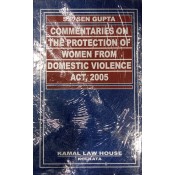
![Choudhari's Commentary on Protection of Women from Domestic Violence Act, 2005 & Rules with Allied Laws [HB] by Adv. V. R. Choudhari | Premier Publishing Company Choudhari's Commentary on Protection of Women from Domestic Violence Act, 2005 & Rules with Allied Laws [HB] by Adv. V. R. Choudhari | Premier Publishing Company](https://law-all.com/image/cache/catalog/data/Book Images/Premier Pub/2023/PPC008-175x175.jpg)
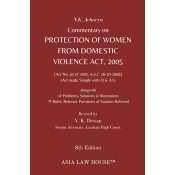
![Vinod Publicaion's Our Views on The Protection of Women from Domestic Violence Act, 2005 [PWDV - HB] by Y. P. Bhagat, Kumar Keshav Vinod Publicaion's Our Views on The Protection of Women from Domestic Violence Act, 2005 [PWDV - HB] by Y. P. Bhagat, Kumar Keshav](https://law-all.com/image/cache/catalog/data/Book Images/Vinod Publications (P) Ltd/2018/VPL003-175x175.jpg)
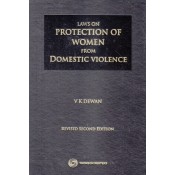
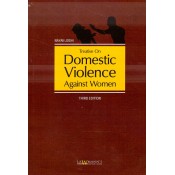
![Ganguly's Law of Protection of Women From Domestic Violence [HB] by Sweet & Soft Publication Ganguly's Law of Protection of Women From Domestic Violence [HB] by Sweet & Soft Publication](https://law-all.com/image/cache/catalog/data/Book Images/Sweet and Soft Publications/2019/SS01-175x175.jpg)
![Dwivedi & Company's Commentary on The Protection of Women from Domestic Violence Act, 2005 [HB] by Sushil Dwivedi & Vikas Dwivedi Dwivedi & Company's Commentary on The Protection of Women from Domestic Violence Act, 2005 [HB] by Sushil Dwivedi & Vikas Dwivedi](https://law-all.com/image/cache/catalog/data/Book Images/Dwivedi and Company/2019/DAC014-175x175.jpg)
![Malik's Commentary on Protection of Women from Domestic Violence [HB] by Delhi Law House Malik's Commentary on Protection of Women from Domestic Violence [HB] by Delhi Law House](https://law-all.com/image/cache/catalog/data/Book Images/Delhi Law House/2024/9789381308950-175x175.jpg)
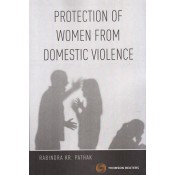
![LRC Publications Digest on Protection of Women from Domestic Violence [HB] by Jitender KR. Dhingra LRC Publications Digest on Protection of Women from Domestic Violence [HB] by Jitender KR. Dhingra](https://law-all.com/image/cache/catalog/data/Book Images/LRC Publication/2019/9788193383179-175x175.jpg)